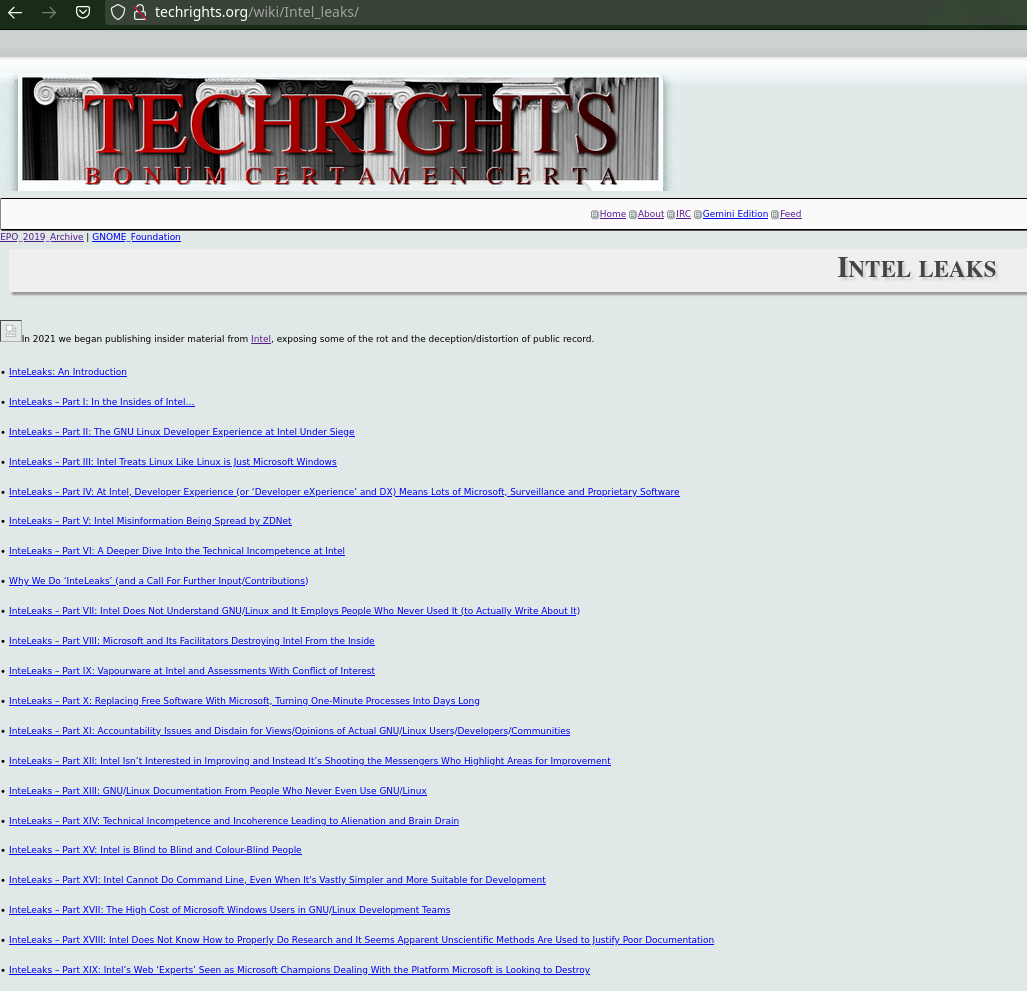The Intel Leaks at Techrights Help Explain Where Intel Went Wrong
Attacking Linux and trying to turn Linux into Windows (while outsourcing code to Microsoft!) repelled or quickly drove away some of the best engineers in the world, irrespective of salaries and token trophies.
In the previous post (Gemini link) it was noted that all bubbles must "end", i.e. "pop" or "implode", eventually. That's just the nature of bubbles, many of which are pyramid schemes. In practice, few charlatans manage to "rope in" many other people and basically "steal" their money - i.e. the capital those people gave under the guise of "investment" (because they were greedy for short-term gains by high-risk gambles). It happens all the time.
So why did Intel collapse? Well, judging by their sales, they just aren't doing well and there's no imminent "fix". A "wontfix" and "willfire" seems like their immediate response, i.e. sacking loads of workers, which may worsen things by reducing the quality assurance processes (read: more defects, including security and stability, i.e. chips that 'crash').
Intel isn't experiencing some temporary misfortune. Intel it probably beyond redemption at this point because its fate was tied to overpriced PCs with Windows preloaded, i.e. its future was tied to Microsoft's. Bad decision. Huge mistake.
A reader said we "could also mention the long list of whole classes of unfixable design flaws" (which AMD shares, e.g. speculative executions, which are "cheats" or "hacks" rather than sound, responsible design decisions).
Intel is basically doomed. The reader said "x86 is done for, only Microsoft is keeping it alive and at the same time Wintel is throwing sand in the gears of everything else."
Intel won't be missed. I know some people who work at Intel and we published embarrassing leaks showing the utter disregard towards Linux at Intel.
Intel was way too busy sucking up to Microsoft. Having founded or cofounded OSDL (Linux Foundation precursor of sorts), Intel followed the example of the other "I" (IBM) and now that it's reliant on GAFAM or acts as a GAFAM reseller it doesn't stand a chance (Apple, for instance, makes its own designs). Intel in the 1990s - like IBM back then - could make better choices and end up on top. Could. But didn't.
Right now Intel is on top of the layoffs tally. That's just the beginning because 15,000-18,000 cuts (number of families affected) isn't enough. There seems to be no actual strategy. Remember "Clear Linux" and Atom? We don't hear about them anymore. █


